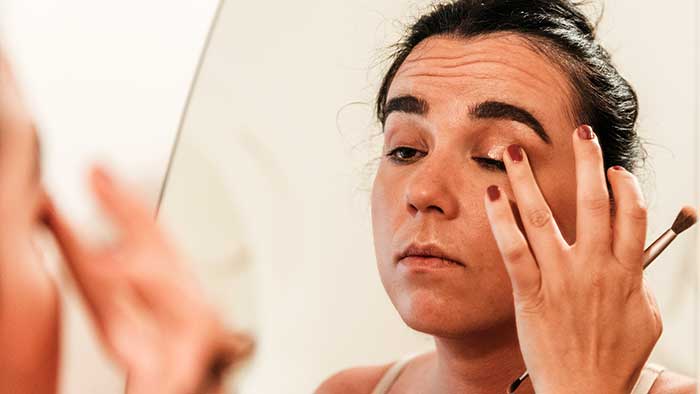Some seemingly harmless habits can cause damage to the skin and compromise the desired results with makeup.
According to a recent survey carried out by Ipsos, around 90% of the Brazilian population suffers from some skin problem, be it acne or the appearance of blemishes. Many of these complications can develop through mistakes such as not cleaning the skin, choosing the wrong products, among others.
Daniela Pontes, a biomedical doctor specializing in biosafety, lists some mistakes that can happen when putting on makeup, and gives tips on what should be done.
Not cleaning your skin properly
It is important to clean the skin to remove impurities, ensuring clean and prepared skin for makeup “Before applying makeup or products such as creams, it is important that the skin is completely cleansed, to prevent the proliferation of any type of microorganism”, explains biomedicine.
Choosing wrong products
Choosing products that are inappropriate for your skin type is a common mistake. “There are different skin types such as dry, oily, combination and more sensitive. Therefore, it is important to buy products that are suitable for your type, this way you can avoid allergic reactions and long-term damage”, he advises.
Not cleaning objects
Pontes emphasizes that you need to take care of your makeup brushes and sponges. Lack of regular cleaning can lead to the accumulation of microorganisms, causing skin problems. “It is necessary to clean all products that come into contact with the skin so that there are no allergies or infections.”
Not paying attention to expiration dates
Using expired makeup can trigger several skin health problems. “When the product is out of date, there is a proliferation of bacteria, fungi and other microorganisms”, he explains.
Not removing makeup residue correctly
After wearing makeup for the desired period, it is important to properly remove the products from your face, so that there are no complications. “The accumulation of residue or makeup residue can clog pores and lead to long-term skin problems” concludes the specialist.






